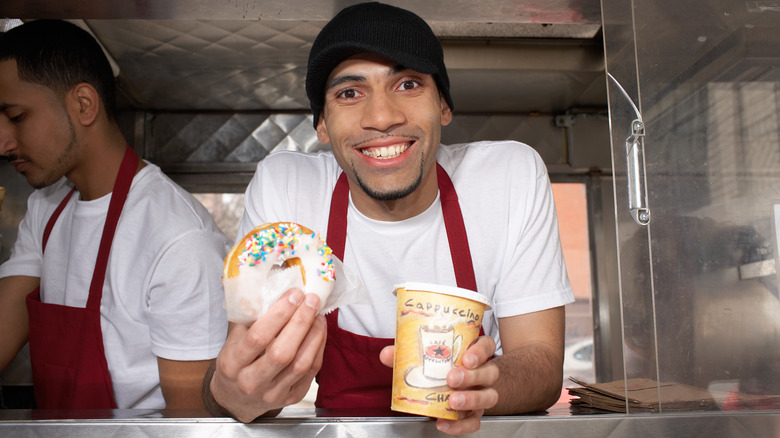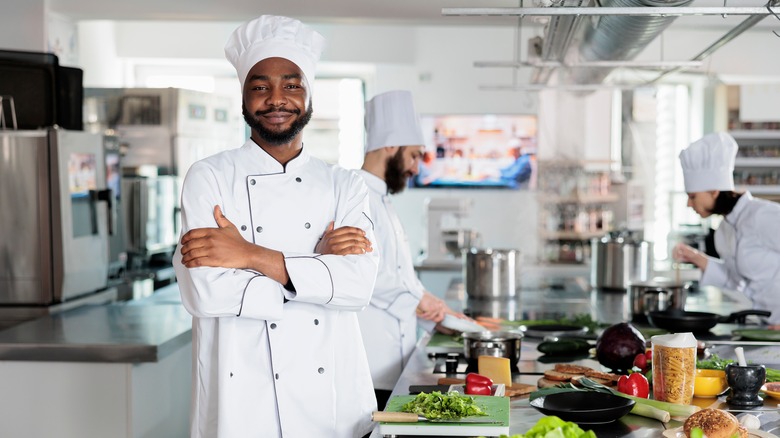The True Meaning Of Pop-Ups For Marginalized Chefs
They aren't food trucks, and they're a bit different than fair booths, but pop-up restaurants share many of the same ideas. Per Square, a pop-up is a type of business opened at a temporary location for a limited amount of time, whether that be one weekend or a couple months. They're often used to flesh out a location's potential, build brand recognition, test out menu items, and give up-and-coming chefs a leg up.
A good example of a pop-up restaurant is Eminem's Mom's Spaghetti. According to Hypebeast, the eatery set up at a temporary New York City location for two weekends in November. The brand began as a pop-up in Detroit, though now it has a permanent location in the rapper's home city. This time, the purpose of the pop-up was to celebrate the 20-year anniversary of "8 Mile."
Because opening a permanent restaurant is a sizable investment, sometimes a potential chef will take the pop-up route to test out their skills. It's also becoming a way for people of color to get ahead in a primarily-white industry, per Eater.
Pop-ups garner name recognition for chefs
It can be hard work for those in a minority group to kick in the doors of a white, male industry. According to Zippia, 59.4% of chefs in the United States are white, while 74.8% are men. That leaves only 17.8% for Hispanics, 10.4% for African Americans, and 9.1% for Asians.
Pop-ups as well as programs centered around them have been decreasing this issue, helping showcase chefs of color in a way that might have never happened otherwise. The Shifting the Lens initiative held by J Vineyards and Winery has been choosing POC as guest chefs that don't own restaurants of their own. "The chefs that we picked are not just like, oh, this is like a Black or brown person," Chef Preeti Mistry said to Eater. "We wanted to be very clear about the chefs that we picked, that they really have something to say."
In 2017, Black husband-wife duo Omar Tate and Cybille St.Aude-Tate didn't have the means to open a business. So, instead, they threw their money into a pop-up restaurant called Honeysuckle. The eatery showcases Black cuisine such as soul food and Black culture backed up by research conducted by Tate. Today, the brand is working on opening a community center in Philadelphia. To sum it up, taking a leap into the pop-up industry can see significant success for marginalized groups, with just a little bit of patience.

